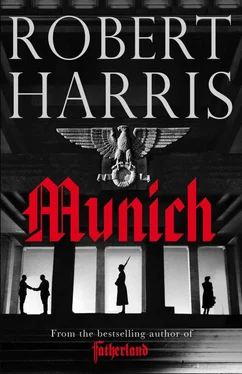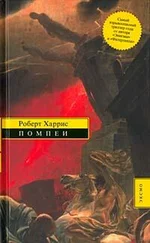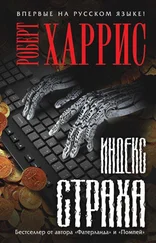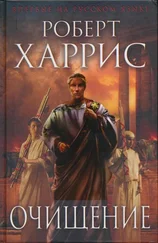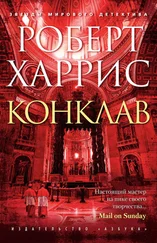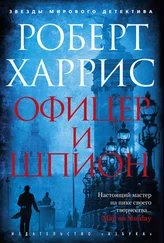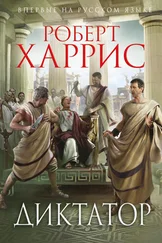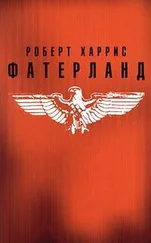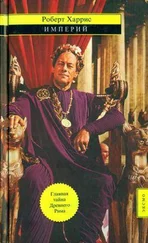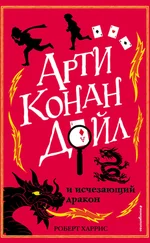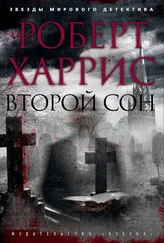‘What did you say?’
‘I thanked them for the warning.’
He laughed and stretched out his absurdly long legs. Water slopped on to the floor. He could feel her skin smooth against his. She was right. They were right. They would hang him one day — on 20 August 1944, to be exact, in Plötensee Prison, at the end of a length of piano wire: he could sense his destiny even if he could not be exact about it — but there was life to be lived before then, and a battle to fight, and a cause that was worth dying for.
Legat was finally sent home a little after 10 p.m. Cleverly had told him there was no need for him to wait until the end of the Cabinet meeting: Syers would handle the boxes; he should take the weekend off.
He walked from Number 10 through streets that were filled with people celebrating. Fireworks were being set off here and there across the city. The flashes of rockets lit the sky.
The upstairs windows were in darkness. The children must be asleep. He turned his key in the lock and set down his suitcase in the hall. He could see the light on in the sitting room. Pamela put aside her book as soon as he came in. ‘Darling!’ She jumped up and threw her arms around him. For more than a minute they didn’t speak. Finally, she broke away and cupped his face in her hands. Her eyes searched his. She said, ‘I have missed you so much.’
‘How are you? How are the children?’
‘Better for having you home.’
She started to unbutton his coat. He caught her hands. ‘No, don’t. I’m not staying.’
She took a step backwards. ‘You have to go back to work?’ It was not a criticism; it sounded more like a hope.
‘No, it’s not work. I’ll just go up and see the children.’
The house was so small they shared a room. John had a bed. Diana was still in a cot. He never ceased to wonder at the quality of the silence when the children were asleep. By the glow of the landing light they lay, unmoving in the semi-darkness, their mouths slightly open. He touched their hair. He wanted to kiss them but didn’t dare in case he woke them. From the top of the chest of drawers the eyepieces of their gas masks watched him. Gently, he closed the door.
Pamela had her back to him when he went down into the sitting room. She turned, dry-eyed. Emotional scenes were never her style. He was thankful for that. She said calmly, ‘How long will you be gone?’
‘I’ll just stay at the club. I’ll come back in the morning. We can talk then.’
‘I can change, you know. If you want me to.’
‘Everything has to change, Pamela. You, me, everything. I’ve been thinking I might resign from the Service.’
‘And do what?’
‘You won’t laugh?’
‘Try me.’
‘I thought on the flight back that I might join the RAF.’
‘But I just heard Chamberlain on the wireless telling the crowd in Downing Street it was peace for our time.’
‘He shouldn’t have done that. He regretted it the moment he said it.’ According to Dunglass, Mrs Chamberlain had talked him into it: she was the one person he never could refuse.
‘So you still think there’ll be a war?’
‘I’m sure of it.’
‘Then what has this all been about — all this hope, this celebration?’
‘It’s simply relief. And I don’t blame people for it. When I look at the children, I feel it myself. But all that’s happened really is that a tripwire has been laid down for the future. And Hitler will cross it, sooner or later.’ He kissed her cheek. ‘I’ll see you in the morning.’
She didn’t reply. He picked up his suitcase and went out into the night. Someone in Smith Square was letting off rockets. In the gardens he could hear cries of delight. The old buildings gleamed fitfully in the cascades of falling sparks and then returned to darkness.
This novel is the culmination of a fascination with the Munich Agreement that dates back more than thirty years, and I would like to thank Denys Blakeway, the producer with whom I made a BBC television documentary, God Bless You, Mr Chamberlain, to mark the fiftieth anniversary of the conference in 1988. We have maintained a mild mutual obsession with the subject ever since.
In Germany, my friends at Heyne Verlag, Patrick Niemeyer and Doris Schuck, helped arrange my research in Munich. I am especially grateful to Dr Alexander Krause for his expert guided tour of what was once the Führerbau and is now the Faculty of Music and Theatre (of which he is Chancellor), and to the Bavarian Interior Ministry for allowing me to visit Hitler’s old apartment in Prinzregentenplatz, now used as a police headquarters.
In Britain, my thanks go to Stephen Parkinson, Political Secretary at 10 Downing Street, and to Professor Patrick Salmon, Chief Historian at the Foreign and Commonwealth Office.
I was fortunate, yet again, to benefit from the advice and support of four shrewd ‘first readers’. To my editor at Hutchinson in London, Jocasta Hamilton; and at Knopf in New York, Sonny Mehta; to my German translator, Wolfgang Müller; and to my wife, Gill Hornby, my deepest thanks, as always.
I would also like to acknowledge my debt to the following works:
John Charmley, Chamberlain and the Lost Peace ; Jock Colville, The Fringes of Power: Downing Street Diaries 1939–1955 ; David Dilks (editor), The Diaries of Sir Alexander Cadogan ; Max Domarus, Hitler: Speeches and Proclamations, 1935–1938 ; David Dutton, Neville Chamberlain ; David Faber, Munich 1938: Appeasement and World War II ; Keith Feiling, The Life of Neville Chamberlain ; Joachim Fest, Albert Speer: Conversations with Hitler’s Architect ; Joachim Fest, Plotting Hitler’s Death: The German Resistance to Hitler 1933–1945 ; Hans Bernd Gisevius, To the Bitter End ; Paul Gore-Booth, With Great Truth and Respect ; Sheila Grant Duff, The Parting of the Ways ; Ronald Hayman, Hitler and Geli ; Nevile Henderson, Failure of a Mission ; Peter Hoffmann, German Resistance to Hitler ; Peter Hoffmann, The History of the German Resistance 1933–1945 ; Peter Hoffmann, Hitler’s Personal Security ; Heinz Höhne, Canaris ; Lord Home, The Way the Wind Blows ; David Irving, The War Path ; Otto John, Twice Through the Lines; The Memoirs of Field Marshal Keitel ; Ian Kershaw, Making Friends with Hitler: Lord Londonderry and Britain’s Road to War ; Ivone Kirkpatrick, The Inner Circle ; Alexander Krause, No. 12 Arcisstrasse ; Klemens von Klemperer (editor), A Noble Combat: The Letters of Sheila Grant Duff and Adam von Trott zu Solz 1932–1939 ; Valentine Lawford, Bound for Diplomacy ; Giles MacDonogh, 1938: Hitler’s Gamble ; Giles MacDonogh, A Good German: Adam von Trott zu Solz ; Andreas Mayor (translator), Ciano’s Diary 1937–1938 ; Harold Nicolson, Diaries and Letters, 1930–1939 ; John Julius Norwich (editor), The Duff Cooper Diaries ; NS-Dokumentationszentrum, München, Munich and National Socialism ; Robert Rhodes James (editor), Chips: The Diaries of Sir Henry Channon ; Richard Ollard (editor), The Diaries of A. L. Rowse ; Richard Overy, with Andrew Wheatcroft, The Road to War ; David Reynolds, Summits: Six Meetings that Shaped the Twentieth Century ; Andrew Roberts, ‘The Holy Fox’: A Biography of Lord Halifax ; Paul Schmidt, Hitler’s Interpreter ; Robert Self, Neville Chamberlain ; Robert Self (editor), The Neville Chamberlain Diary Letters, Volume Four ; William L. Shirer, Berlin Diary ; Reinhard Spitzy, How We Squandered the Reich ; Lord Strang, Home and Abroad ; Despina Stratigakos, Hitler at Home ; Christopher Sykes, Troubled Loyalty: A Biography of Adam von Trott ; A. J. P. Taylor, The Origins of the Second World War ; Telford Taylor, Munich: The Price of Peace ; D. R. Thorpe, Alec Douglas-Home ; Daniel Todman, Britain’s War: Into Battle 1937–1941 ; Gerhard L. Weinberg, The Foreign Policy of Hitler’s Germany, 1937–1939 ; Ernst von Weizsäcker, Memoirs ; Sir John Wheeler-Bennett, The Nemesis of Power: The German Army in Politics 1918–1945 ; Stefan Zweig, The World of Yesterday: Memoirs of a European.
